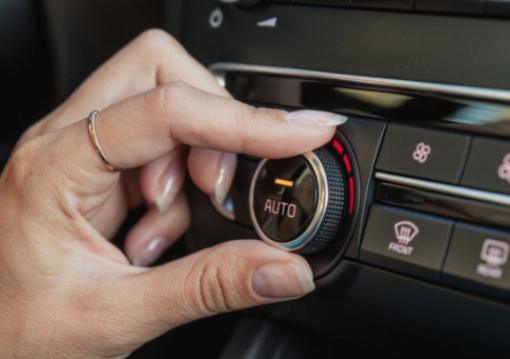Is your car's AC unit making strange and unusual sounds that have you scratching your head? These sounds may be indicators of potential faults and issues that need to be addressed. From hissing and clunking to clicking and squealing, each noise could be a sign of a specific problem that requires a common fix. In this article, we will explore five unusual sounds that can emanate from your car's AC unit and what they might indicate. Don't ignore these sound cues – they could be a signal that something is amiss with your vehicle's AC system.

Hissing or Bubbling Sounds and Clunking or Banging Noises
One of the most common signs of a problem with your car's AC unit is the presence of hissing or bubbling sounds, as well as clunking or banging noises. These unusual sounds can indicate a variety of issues within the system, from a refrigerant leak to a failing compressor or a clogged system. It's important to address these sounds promptly to prevent further damage to your AC unit and ensure the comfort of your driving experience.
Clicking Sounds When Turning On and Squealing or Screeching During Operation
One common issue with car AC units is the presence of clicking sounds when turning on the system, as well as squealing or screeching noises during operation. These noises can often be attributed to a faulty AC compressor clutch or a worn-out drive belt. The clicking sound may indicate that the compressor clutch is failing to engage properly, while the squealing or screeching noises could be a result of a loose or worn-out drive belt. It is important to address these issues promptly, as a malfunctioning compressor clutch or drive belt can lead to further damage to the AC system and result in a loss of cooling capability. Regular maintenance and inspection of the AC system can help to identify and resolve these issues before they escalate.
Rattling Noises Inside the Cabin and Loud Noise When Compressor Engages
Rattling noises inside the cabin and a loud noise when the compressor engages can be signs of a failing compressor or loose components within the AC system. The compressor is responsible for pressurizing the refrigerant and circulating it through the system. If the compressor is making a loud noise when it engages, it may be due to worn bearings or internal components.
Rattling noises inside the cabin can indicate loose or broken components within the AC system. This could be anything from a loose belt to a failing blower motor or fan. It's important to address these noises as soon as possible, as ignoring them could lead to further damage and potentially costly repairs.
If you are experiencing these unusual sounds coming from your car's AC unit, it's important to have the system inspected by a qualified technician. They can diagnose the source of the noises and recommend the necessary repairs to ensure your AC system is functioning properly and efficiently.
Flapping or Whirring As Blower Runs and Groaning or Humming at Start-Up
Flapping or Whirring as Blower Runs and Groaning or Humming at Start-Up
When you hear a flapping or whirring sound as the blower runs, this could indicate an issue with the blower motor or the fan blades. It may be caused by a loose or damaged blower motor or debris blocking the fan blades. It's important to address this issue promptly to prevent further damage to the blower motor.
Additionally, a groaning or humming noise at start-up could be a sign of a failing compressor. This could be due to a lack of lubrication or worn-out components within the compressor. It's crucial to have the compressor inspected and potentially replaced to ensure the proper functioning of the AC unit.
Addressing these unusual sounds promptly can prevent further damage and costly repairs in the long run. It's recommended to have a professional mechanic diagnose and fix these issues to ensure the safety and performance of your car's AC unit.
